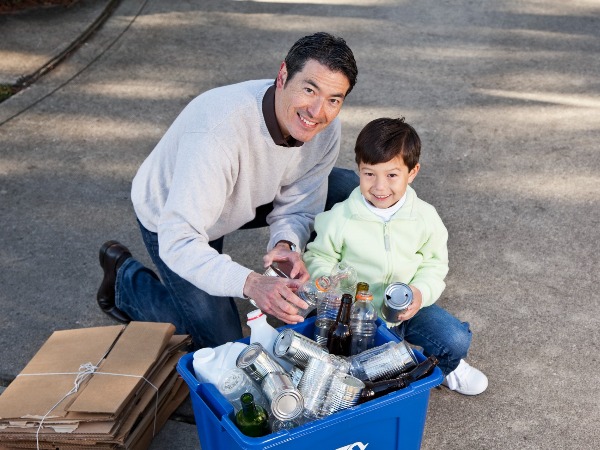
Have you noticed that what is accepted for recycling may change from year to year or from place to place? That’s because recyclables are part of a commodities market.
For example, sometimes certain types of your recyclable plastics or glass can be sold at a reasonable price, and other times the market price is so low that it costs more to sort and ship these recyclables than they are currently worth. Selling recyclables at a loss leads to increased costs and can lead to additional program fees. To avoid this, your local program may occasionally modify what is accepted for recycling to make the program sustainable, just as you adjust your household purchases and budget to meet changing costs and needs.
To add to the problem, recycling contamination is an issue. According to the EPA, contamination levels are over 25% in some areas. In other words, one of every four items in recycling bins doesn’t belong there. Contamination results when the wrong materials and dirty items are placed into recycling bins or carts. Removing these materials costs money and reduces the price end markets pay for your recyclables.
To face today’s challenging recycling markets, we all need to recycle better by keeping recyclables clean and contaminant-free. Follow these simple guidelines to create market-ready recyclables:
• Place only accepted recyclables in the curbside recycling cart or drop-off recycling bins. If you aren’t sure what is accepted, check with your local solid waste authority.
• Empty food and liquids from cans, bottles, and jars and let the containers drip-dry before placing them into the recycling bin. This helps keep paper and cardboard clean.
• When in doubt, throw it out. Many folks put items into the recycling container, hoping they are recyclable. Despite these good intentions, some items should not be mixed with clean recyclables. Read more about “wishcycling” here.
• Keep it loose! Do not bag your recycling. Plastic bags, whether loose or holding recyclables, are considered contamination.
• Know what should never be placed in your curbside recycling container! Never put in food waste, clothing, cords, hoses, tissues, paper towels, hazardous waste, or electronics. And, please, absolutely NO diapers!
Photo credit: kali9 | iStock | Getty Images Plus
